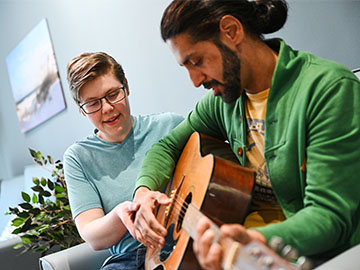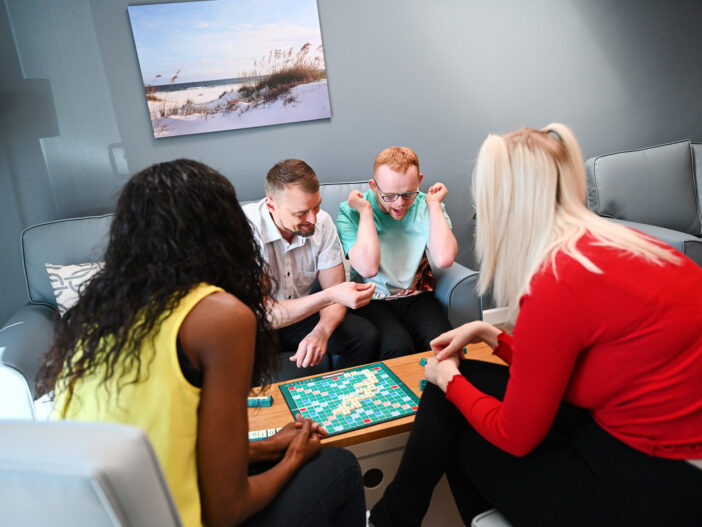Positive risk-taking for better brain injury outcomes
Kim Kauldhar is an Operations Manager in our Brain Injury Rehabilitation service team at Voyage Care. Below, Kim shares her thoughts on how positive risk-taking results in better brain injury outcomes.
Positive risk-taking is all about identifying a risk alongside it’s benefit and then encouraging and supporting risk-taking so people can achieve personal growth.
People with acquired brain injuries come into our services adapting to a different type of life than the one they were used to before their injury. During their rehabilitation journey, they are given the tools to rebuild their lives and either transition back into the community or stay in one of our independent living solutions on a long-term placement. Whichever they choose, positive risk-taking is central to an individual’s recovery and in helping them achieve their goals.
For example, if somebody used to participate in extreme sports, they wouldn’t typically consider this as a risk, however after a life-changing brain injury, they would need to look at risk vs. enjoyment before doing it. This is because a brain injury can affect you mentally and physically, with both your mobility and fine motor skills.
How positive risk-taking helps recovery
Our teams help individuals set goals to build their independence but with that comes risk. For example, a simple task such as helping someone to use a knife again has so many risks associated with it but taking that risk will increase their independence and personal growth. So, when we talk about positive risk-taking it’s not about eliminating the risk entirely, but managing it, so it’s safe for the person to complete while maximising choice and control.
We like to strip the goals down in order to manage the risk and gradually increase them in small increments as and when the individual is ready. We have a duty of care as an organisation to ensure safety, but equally, we have a duty to support individuals to flourish and live a happy independent life.
I believe as a society we are very risk averse and our first instinct is to stop something from a health and safety perspective. But as I’ve demonstrated, positive risk-taking is key to an individual’s development. I believe it’s important to talk about it with staff and the people we support so they feel more confident in discussing and implementing during the recovery process.
Encouraging Positive Risk-Taking
Embracing risk-taking can be challenging for some staff and managers which is why we encourage them to consistently discuss it. This starts from the top. If we are clear about the direction and purpose, the wider staff team will feel more confident in supporting positive risk-taking.
As a manager, if you lead by example and engage with new ideas, individuals and staff feel safe to voice their opinions. It’s all about communicating with staff to ensure everyone is working towards the same goal. At Voyage Care, our goal is about giving the people we support control and choice over their lives. One of the ways this is achieved is through positive risk-taking.
How it’s used in the Voyage Care Brain Injury Rehabilitation Services
As a senior management team, we ensure all our services aim to implement positive risk-taking. When setting goals, we help each person to identify areas they want to grow and how it will help them move forward and we use risk-taking as a tool to help them achieve these goals.
For example, we supported an individual who didn’t have the confidence in self-care because he let his injury limit him. By encouraging him to take small risks such as shaving, even though there were risks involved with it, promoted control. A consistent flow of small changes has helped the individual to now go out on his own and he has made huge progress.
Care teams that are constantly encouraged to discuss positive risk-taking will have a clear understanding of the benefits and the impact this will have on an individual’s life in helping them to reach their goals.
For the individual it helps them to re-discover themselves and with that comes confidence, growth and independence. Whenever I am in a service and I see people smiling and laughing, I know the work we are doing is making a real difference and is giving people choice and control over their lives.
Find out more
To find out more about our brain injury rehabilitation support, please visit our Brain Injury Rehabilitation page or fill out our quick enquiry form.

 Views
Views 

